Can toothpaste get rid of mouth ulcers
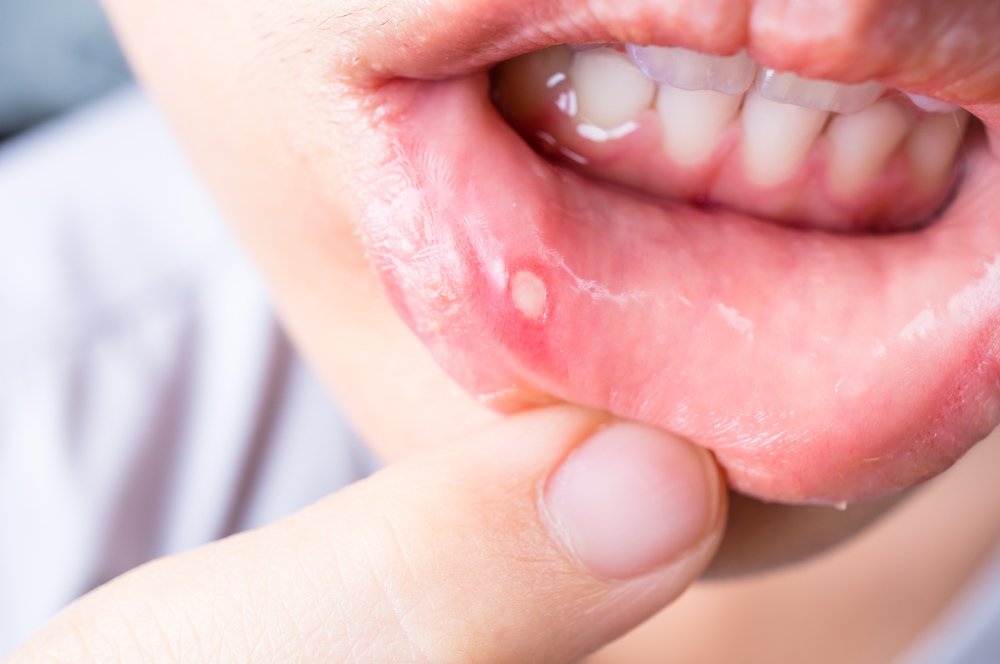
Mouth ulcers are a common nuisance that can cause pain, discomfort, and difficulty eating and drinking. While there are a variety of over-the-counter and prescription treatments available, some people prefer to try natural remedies. One such remedy is toothpaste. But can toothpaste really get rid of mouth ulcers?
Can Toothpaste Treat Mouth Ulcers?
While toothpaste might seem like a readily available solution for mouth ulcers (also known as aphthous ulcers or canker sores), it's generally not recommended as a treatment. Many toothpastes contain ingredients that can actually irritate already sensitive ulcer tissue, potentially worsening the pain and slowing down the healing process. The abrasive nature of some toothpastes can also physically damage the ulcer, delaying recovery. While some individuals might report a temporary numbing effect from certain ingredients, this is not a reliable or consistent outcome, and the potential for harm outweighs any perceived benefits. For effective treatment, it's crucial to consult a dentist or doctor for proper diagnosis and guidance on appropriate remedies.
What Causes Mouth Ulcers?
Mouth ulcers are small, painful sores that develop inside the mouth. The exact cause isn't fully understood, but several factors are linked to their appearance. These include stress, minor injuries (like biting your cheek), hormonal changes (particularly in women), certain foods (like acidic or spicy foods), vitamin deficiencies (like vitamin B12 or iron), and weakened immune systems. Some individuals are also more prone to mouth ulcers than others, suggesting a genetic predisposition might play a role. Understanding the underlying cause is crucial for preventing future outbreaks.
What are the Ingredients in Toothpaste that Might Irritate Ulcers?
Many toothpastes contain ingredients that can irritate sensitive mouth tissues. Sodium lauryl sulfate (SLS) is a common surfactant found in many toothpastes that creates foam. This ingredient can be particularly irritating to ulcerated areas. Abrasive agents, which help clean teeth, can also further damage delicate ulcer tissue, hindering healing. Strong flavors and fragrances can also exacerbate the pain and discomfort. Choosing a toothpaste that is SLS-free and has minimal abrasive agents and mild flavors might be a better option for those prone to mouth ulcers, but it's important to note that even gentle toothpastes should be used carefully around ulcers.
What are Better Treatment Options for Mouth Ulcers?
Several effective treatments are available for mouth ulcers. Over-the-counter (OTC) pain relievers like ibuprofen or acetaminophen can help manage the pain. Oral rinses containing antiseptic agents can reduce bacteria and promote healing. Topical creams or gels containing corticosteroids or anesthetic agents can provide relief and accelerate healing. In some cases, a prescription medication might be necessary, especially for recurring or severe ulcers. It's always advisable to consult a healthcare professional for an accurate diagnosis and personalized treatment plan.
When Should I See a Doctor About a Mouth Ulcer?
While most mouth ulcers heal within a week or two, it's crucial to seek medical attention if you experience: ulcers that are unusually large or deep; ulcers that last longer than three weeks; multiple ulcers that appear simultaneously; ulcers accompanied by fever, fatigue, or swollen lymph nodes; or ulcers that are resistant to home treatments. These symptoms could indicate an underlying medical condition that requires professional assessment and treatment. A doctor can determine the root cause and recommend the most appropriate course of action.
| Treatment Option | Effectiveness | Potential Side Effects |
|---|---|---|
| Toothpaste | Generally ineffective and may worsen ulcers | Increased irritation, delayed healing |
| OTC Pain Relievers | Effective pain management | Possible stomach upset (with NSAIDs) |
| Antiseptic Mouthwash | Helps reduce bacteria and promote healing | May cause temporary discoloration of teeth |
| Topical Corticosteroid Creams | Reduces inflammation and speeds healing | Potential for skin thinning with long-term use |
Can Toothpaste Treat Mouth Ulcers?
While toothpaste might seem like a readily available solution for mouth ulcers (also known as aphthous ulcers or canker sores), it's generally not recommended as a treatment. Many toothpastes contain ingredients that can actually irritate already sensitive ulcer tissue, potentially worsening the pain and slowing down the healing process. The abrasive nature of some toothpastes can also physically damage the ulcer, delaying recovery. While some individuals might report a temporary numbing effect from certain ingredients, this is not a reliable or consistent outcome, and the potential for harm outweighs any perceived benefits. For effective treatment, it's crucial to consult a dentist or doctor for proper diagnosis and guidance on appropriate remedies.
What Causes Mouth Ulcers?
Mouth ulcers are small, painful sores that develop inside the mouth. The exact cause isn't fully understood, but several factors are linked to their appearance. These include stress, minor injuries (like biting your cheek), hormonal changes (particularly in women), certain foods (like acidic or spicy foods), vitamin deficiencies (like vitamin B12 or iron), and weakened immune systems. Some individuals are also more prone to mouth ulcers than others, suggesting a genetic predisposition might play a role. Understanding the underlying cause is crucial for preventing future outbreaks.
What are the Ingredients in Toothpaste that Might Irritate Ulcers?
Many toothpastes contain ingredients that can irritate sensitive mouth tissues. Sodium lauryl sulfate (SLS) is a common surfactant found in many toothpastes that creates foam. This ingredient can be particularly irritating to ulcerated areas. Abrasive agents, which help clean teeth, can also further damage delicate ulcer tissue, hindering healing. Strong flavors and fragrances can also exacerbate the pain and discomfort. Choosing a toothpaste that is SLS-free and has minimal abrasive agents and mild flavors might be a better option for those prone to mouth ulcers, but it's important to note that even gentle toothpastes should be used carefully around ulcers.
What are Better Treatment Options for Mouth Ulcers?
Several effective treatments are available for mouth ulcers. Over-the-counter (OTC) pain relievers like ibuprofen or acetaminophen can help manage the pain. Oral rinses containing antiseptic agents can reduce bacteria and promote healing. Topical creams or gels containing corticosteroids or anesthetic agents can provide relief and accelerate healing. In some cases, a prescription medication might be necessary, especially for recurring or severe ulcers. It's always advisable to consult a healthcare professional for an accurate diagnosis and personalized treatment plan.
When Should I See a Doctor About a Mouth Ulcer?
While most mouth ulcers heal within a week or two, it's crucial to seek medical attention if you experience: ulcers that are unusually large or deep; ulcers that last longer than three weeks; multiple ulcers that appear simultaneously; ulcers accompanied by fever, fatigue, or swollen lymph nodes; or ulcers that are resistant to home treatments. These symptoms could indicate an underlying medical condition that requires professional assessment and treatment. A doctor can determine the root cause and recommend the most appropriate course of action.
| Treatment Option | Effectiveness | Potential Side Effects |
|---|---|---|
| Toothpaste | Generally ineffective and may worsen ulcers | Increased irritation, delayed healing |
| OTC Pain Relievers | Effective pain management | Possible stomach upset (with NSAIDs) |
| Antiseptic Mouthwash | Helps reduce bacteria and promote healing | May cause temporary discoloration of teeth |
| Topical Corticosteroid Creams | Reduces inflammation and speeds healing | Potential for skin thinning with long-term use |
Is toothpaste good for mouth sores?
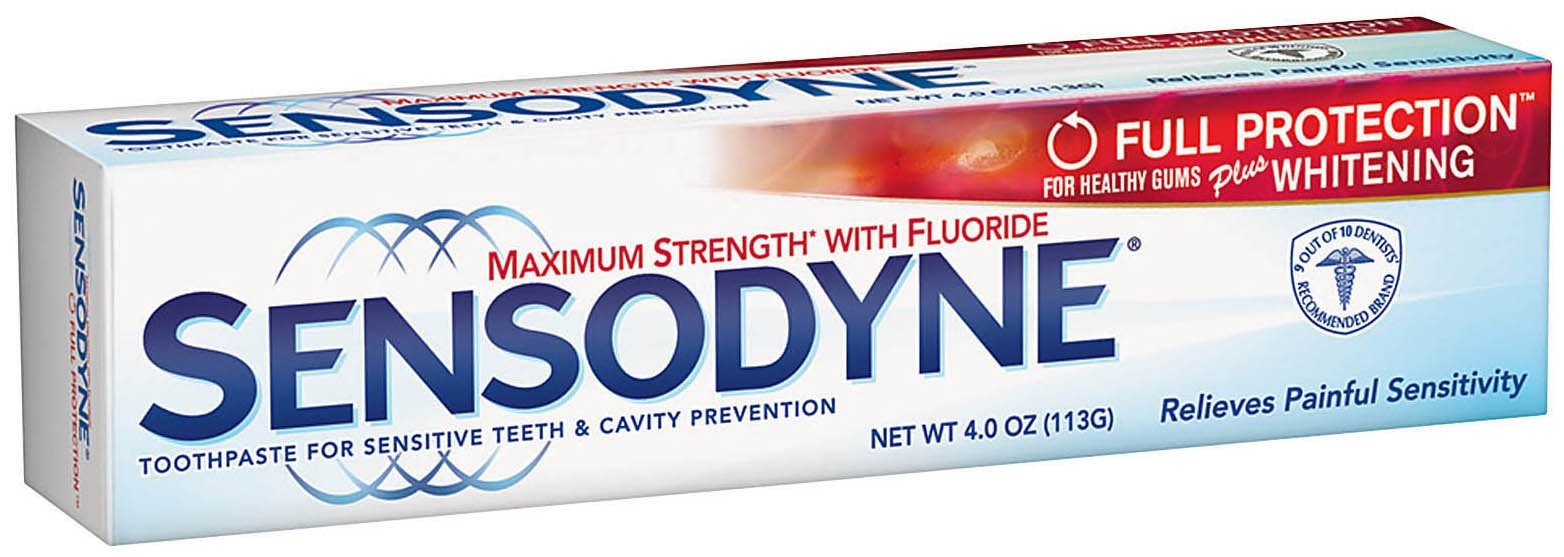
Is Toothpaste Good for Mouth Sores?
Generally, toothpaste is not recommended for treating mouth sores. While it might seem like a logical solution due to its cleaning properties, many toothpastes contain ingredients that can actually irritate already inflamed tissue, worsening the pain and slowing down healing. The abrasive nature of toothpaste can further damage the delicate sore, causing discomfort and potentially delaying recovery. The presence of sodium lauryl sulfate (SLS), a common foaming agent in toothpaste, is a particular irritant for canker sores. Therefore, while toothpaste might seem like a quick fix, it's often counterproductive in treating mouth sores.
What are Mouth Sores?
Mouth sores, also known as oral ulcers or aphthous ulcers, are small, shallow lesions that develop on the soft tissues inside the mouth. They can appear on the tongue, gums, inner cheeks, or lips. These sores are typically painful and can make eating and speaking difficult. Several factors contribute to mouth sores, including stress, nutritional deficiencies, hormonal changes, and injuries to the mouth.
- Types of mouth sores: There are various types including minor aphthous ulcers, major aphthous ulcers, and herpetiform ulcers, each differing in size and healing time.
- Symptoms: Common symptoms include pain, burning sensation, and difficulty eating or drinking.
- Causes: While the exact cause is unknown, factors such as stress, injuries, hormonal changes, and certain food sensitivities are implicated.
Why Toothpaste Can Worsen Mouth Sores
Many toothpastes contain ingredients that are actively harmful to mouth sores. The abrasive nature of toothpaste can cause further irritation and damage to the already inflamed tissue. Furthermore, ingredients such as sodium lauryl sulfate (SLS), a common foaming agent, are known to exacerbate the pain and inflammation associated with mouth sores. This is because SLS can disrupt the delicate protective barrier of the oral mucosa, increasing the sensitivity and prolonging the healing process.
- Abrasiveness: The abrasive particles in toothpaste can physically damage the delicate tissues of the mouth sore, delaying healing.
- Sodium Lauryl Sulfate (SLS): This common ingredient is a known irritant and can worsen inflammation and pain.
- Other irritants: Certain fragrances and flavorings in toothpaste can also irritate sensitive mouth sores.
Effective Treatments for Mouth Sores
Fortunately, numerous effective treatments are available for managing mouth sores. Rinsing your mouth with a saltwater solution or using an over-the-counter oral anesthetic gel can provide significant relief from pain and promote healing. Some mouthwashes designed specifically for treating mouth sores are also beneficial. For persistent or recurring mouth sores, it's important to consult a dentist or doctor for proper diagnosis and treatment to rule out underlying medical conditions.
- Saltwater rinses: A simple and effective home remedy to reduce pain and inflammation.
- Oral anesthetic gels: These gels numb the area, providing pain relief.
- Prescription medications: In some cases, prescription medications may be necessary to manage severe or persistent mouth sores.
When to See a Doctor About Mouth Sores
While many mouth sores heal on their own within a week or two, it's essential to seek medical attention if the sores are unusually large, persistent, or accompanied by other symptoms such as fever, swollen lymph nodes, or difficulty swallowing. These could indicate a more serious underlying condition requiring professional medical care. Regular dental check-ups are also important for early detection and management of any oral health issues.
- Persistent sores: Sores that last longer than two weeks should be evaluated by a doctor or dentist.
- Unusual symptoms: Accompanying symptoms like fever, swollen glands, or difficulty swallowing warrant immediate medical attention.
- Large or severe sores: Significant discomfort or large sores that impair daily functions require professional evaluation.
Preventing Mouth Sores
While the exact causes of mouth sores aren't always clear, several preventive measures can help reduce the risk of their occurrence. Maintaining good oral hygiene, avoiding foods that may trigger sores, and managing stress levels are crucial for preventing mouth sores. A balanced diet rich in vitamins and minerals also contributes to overall oral health and resilience.
- Good oral hygiene: Regular brushing and flossing help maintain a healthy oral environment.
- Dietary adjustments: Identifying and avoiding trigger foods can prevent future sores.
- Stress management: Stress reduction techniques can lessen the frequency of mouth sores.
What is the fastest way to cure mouth ulcers?
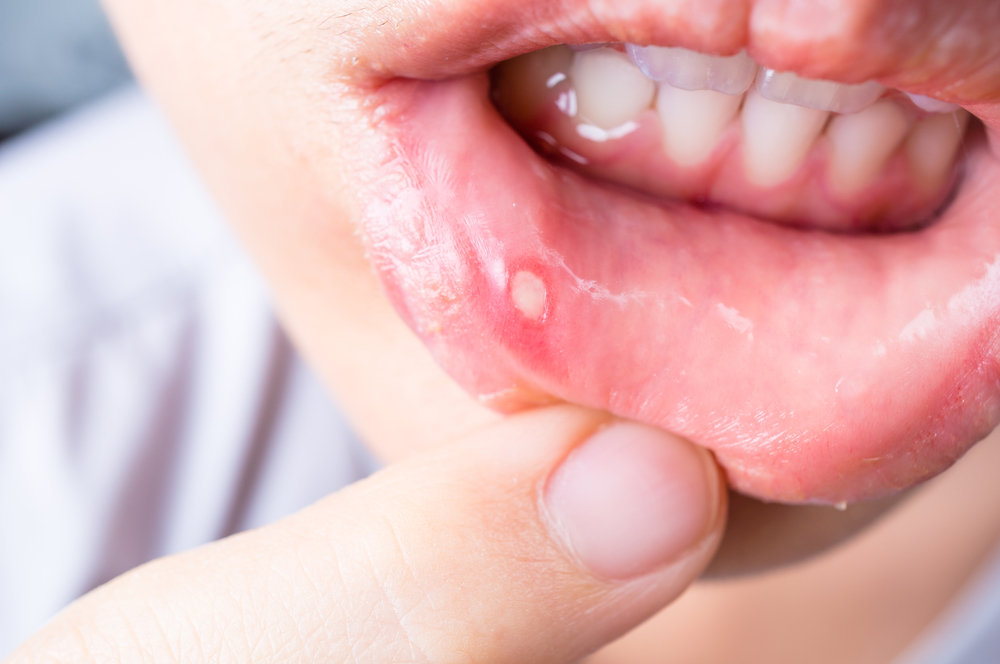
There's no single "fastest" way to cure mouth ulcers (also known as canker sores) as healing time varies depending on the size and cause of the ulcer. However, several approaches can significantly reduce pain and promote faster healing. Treatment focuses on pain relief and creating a conducive environment for healing. This often involves a combination of over-the-counter remedies and lifestyle changes. While some ulcers heal within a week or two, others can persist for several weeks. Seeking professional advice from a dentist or doctor is recommended if ulcers are persistent, recurring, large, or accompanied by other symptoms.
Over-the-Counter Remedies for Faster Healing
Several over-the-counter products can provide rapid relief from mouth ulcer pain and potentially speed up the healing process. These are generally topical applications designed to create a protective barrier over the ulcer, reducing irritation and promoting healing. It's crucial to follow the product instructions carefully.
- Oral analgesics: Pain relievers like benzocaine or lidocaine can numb the area, providing immediate relief from discomfort.
- Antiseptic mouthwashes: These can help keep the ulcer clean and prevent infection, although some may contain alcohol that can further irritate the sore.
- Topical corticosteroids: These can reduce inflammation and pain, but should only be used as directed by a healthcare professional.
Home Remedies for Mouth Ulcer Relief
Many home remedies can provide soothing relief and potentially aid in faster healing. These options are often gentler than over-the-counter medications and can be used in conjunction with other treatments. Consistency is key; applying remedies several times a day may be necessary.
- Saltwater rinses: Dissolving salt in warm water creates a mild antiseptic solution that can cleanse the ulcer and reduce inflammation.
- Aloe vera gel: Its anti-inflammatory and soothing properties can reduce pain and promote healing when applied directly to the ulcer.
- Honey: Its antibacterial and anti-inflammatory properties can help promote faster healing and reduce pain.
Lifestyle Adjustments to Accelerate Healing
Certain lifestyle changes can significantly impact the healing process of mouth ulcers. By mitigating potential irritants and promoting overall oral health, you can create an environment conducive to faster recovery. Addressing underlying issues is crucial for preventing future occurrences.
- Avoid acidic and spicy foods: These can irritate the ulcer and prolong healing time.
- Maintain good oral hygiene: Gentle brushing and flossing (avoiding the ulcer directly) are essential to prevent infection.
- Manage stress levels: Stress can exacerbate mouth ulcers, so finding ways to manage stress is beneficial.
When to Seek Professional Medical Advice
While many mouth ulcers heal on their own, it's important to seek professional medical advice in specific circumstances. Early intervention can prevent complications and ensure appropriate treatment. Don't hesitate to consult a dentist or doctor if the ulcer doesn't improve or worsens.
- Persistent ulcers: Ulcers that last longer than two to three weeks warrant medical attention.
- Large or severe ulcers: Significant pain, bleeding, or difficulty eating or speaking require professional assessment.
- Recurring ulcers: Frequent occurrences of mouth ulcers could indicate an underlying medical condition.
Nutritional Considerations for Faster Healing
A balanced diet plays a crucial role in overall health and can positively influence the healing process of mouth ulcers. Nutrient deficiencies can sometimes contribute to ulcer development. Providing your body with the necessary building blocks for tissue repair is essential for faster recovery.
- Increase Vitamin B12 intake: Deficiency is linked to increased risk of mouth ulcers.
- Consume foods rich in iron: Iron is crucial for red blood cell production, essential for healing.
- Ensure adequate folate and zinc levels: These nutrients are vital for cell growth and repair.
What toothpaste is good for ulcers?
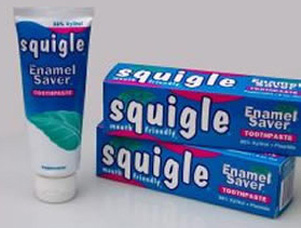
There is no toothpaste specifically designed to treatmouth ulcers (also known as canker sores or aphthous ulcers). Toothpaste itself doesn't directly heal ulcers. The irritation from certain ingredients in some toothpastes, however, can worsen the pain and healing process. Therefore, choosing a toothpaste with certain characteristics can help manage the discomfort associated with ulcers.
What ingredients to avoid in toothpaste for mouth ulcers?
Many commercially available toothpastes contain ingredients that can irritate already-inflamed tissues in the mouth, potentially making ulcers more painful and slowing healing. It's crucial to select a toothpaste that minimizes these irritants. Avoid toothpastes containing sodium lauryl sulfate (SLS), a common foaming agent, as it is a known irritant. Similarly, strong whitening agents and high abrasiveness levels should be avoided.
- Sodium Lauryl Sulfate (SLS): This surfactant is a major culprit in irritating sensitive oral tissues. Look for "SLS-free" labels.
- High Abrasiveness: Abrasive toothpastes can further scrape and irritate already damaged ulcer tissue. Check the Relative Dentin Abrasivity (RDA) value – lower is better (ideally under 70).
- Whitening Agents: Some whitening agents can be harsh and exacerbate the sensitivity around ulcers.
Recommended Toothpaste Characteristics for Mouth Ulcers
When dealing with mouth ulcers, opt for a toothpaste that is gentle and minimizes irritation. Look for toothpastes that are specifically formulated for sensitive teeth or gums. These typically contain milder abrasives and are free of SLS. Additionally, a toothpaste with a neutral or slightly alkaline pH might be less irritating than acidic formulas.
- Sensitivity-Formulated Toothpaste: These toothpastes are gentler and less likely to cause irritation.
- Low RDA Value: Check the RDA value for abrasiveness; a lower number indicates less abrasion.
- Neutral or Slightly Alkaline pH: Avoid acidic toothpastes that might worsen discomfort.
The Role of Fluoride in Mouth Ulcers
Fluoride is generally beneficial for oral health, contributing to strong enamel and reducing cavity risk. However, if a mouth ulcer is particularly sensitive, using a fluoride toothpaste might cause temporary stinging. Consider using a fluoride-containing toothpaste, but if it causes discomfort, a fluoride-free option might be preferable temporarily. It's always advisable to consult your dentist or doctor for personalized advice.
- Benefits of Fluoride: Fluoride promotes healthy enamel and reduces cavities.
- Potential Irritation: Some individuals with sensitive ulcers may experience temporary discomfort from fluoride.
- Consult Your Healthcare Provider: If you experience discomfort from fluoride, seek advice from a healthcare professional.
Natural Alternatives and Home Remedies
While not a replacement for proper oral hygiene with a suitable toothpaste, some individuals find relief from mouth ulcers using natural remedies. These are often used as complementary measures, not primary treatments. Examples include rinsing with salt water, applying aloe vera gel, or using honey. Always consult a dentist or doctor if your ulcers are persistent or severe.
- Salt Water Rinse: This simple remedy helps to clean the area and reduce inflammation.
- Aloe Vera Gel: This can soothe the affected area and promote healing.
- Honey: Honey possesses natural antibacterial properties.
When to See a Dentist or Doctor
Most mouth ulcers heal within 1-2 weeks. However, you should consult your dentist or doctor if your ulcers: persist for longer than two weeks, are unusually large or painful, bleed excessively, recur frequently, or are accompanied by other symptoms like fever or swollen lymph nodes. They can help determine the underlying cause and recommend appropriate treatment.
- Persistent Ulcers (longer than 2 weeks): This warrants professional evaluation.
- Severe Pain or Bleeding: These symptoms suggest a need for medical attention.
- Recurring Ulcers: Frequent occurrences may indicate an underlying condition.
Does brushing teeth help mouth ulcers?
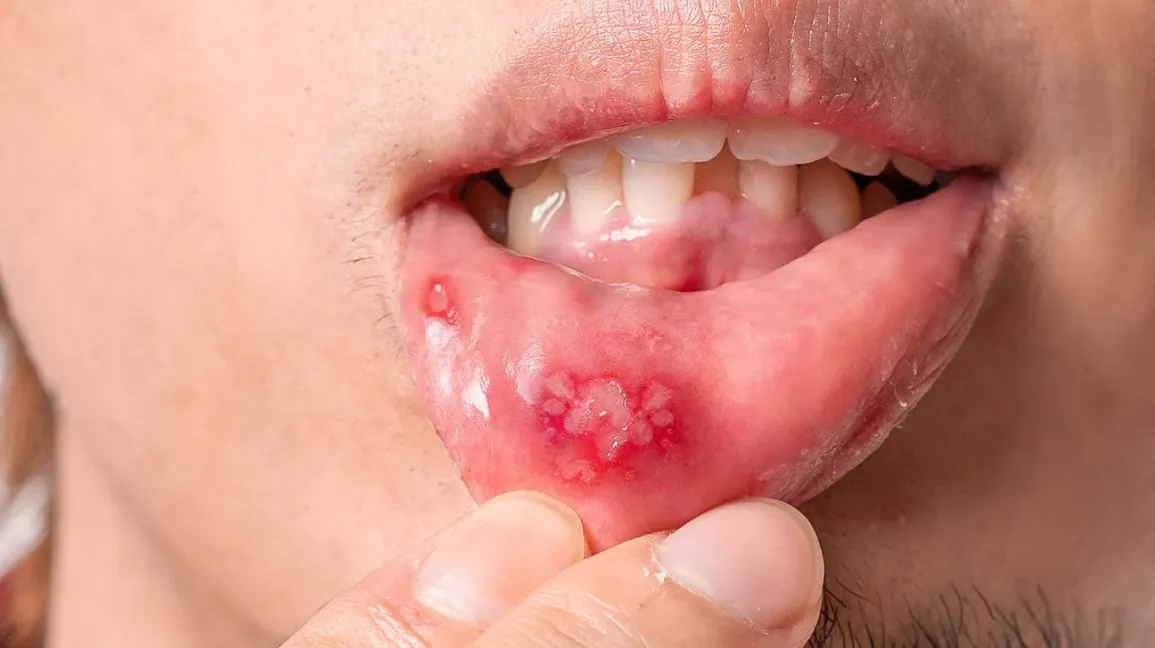
Brushing teeth does not directly heal mouth ulcers, but it plays a crucial role in preventing them from worsening and promoting faster healing. Mouth ulcers, or aphthous ulcers, are typically caused by minor injuries, stress, or immune system issues, not oral hygiene. However, poor oral hygiene can create an environment conducive to infection and inflammation, potentially exacerbating existing ulcers and increasing discomfort. While brushing won't make the ulcer disappear, using a soft-bristled toothbrush and gentle brushing technique around the ulcer can help remove food particles and bacteria that could irritate the sore and slow healing.
What Causes Mouth Ulcers?
Mouth ulcers, also known as aphthous ulcers or canker sores, are small, shallow sores that develop inside the mouth. While the exact cause remains unknown, several factors are believed to contribute to their formation. These include minor injuries to the mouth, such as biting your cheek or tongue, stress, hormonal changes, certain food allergies or sensitivities, and weakened immune systems. Some research also suggests a link between nutritional deficiencies and mouth ulcer development. Treating the underlying cause is vital for managing these painful sores.
- Physical Trauma: Biting your cheek, accidental injury from dental work, or ill-fitting dentures.
- Immune System Factors: Autoimmune diseases, stress-induced immune system imbalances.
- Dietary Deficiencies: Low levels of vitamins B12, folate, or iron.
How Does Brushing Affect Mouth Ulcer Healing?
While brushing doesn't directly heal mouth ulcers, it's an important part of oral hygiene that aids healing. Gentle brushing removes food particles and bacteria from around the ulcer, minimizing the risk of infection and irritation. This can lead to reduced pain and inflammation, promoting faster healing. However, it’s crucial to use a soft-bristled toothbrush and be extra gentle when brushing near the ulcer to avoid causing further trauma.
- Reduces Bacterial Load: Prevents secondary infections that could prolong healing time.
- Removes Irritants: Food particles can exacerbate the ulcer, and brushing helps remove them.
- Maintains Oral Hygiene: Overall better mouth health contributes to a supportive healing environment.
What Type of Toothbrush Should You Use?
Choosing the right toothbrush is crucial when dealing with mouth ulcers. A soft-bristled toothbrush is recommended to minimize irritation and further damage to the sensitive ulcer area. Medium or hard-bristled brushes can aggravate the ulcer and prolong healing. It’s also important to replace your toothbrush regularly, about every three months, or sooner if the bristles are frayed. A worn-out toothbrush can be less effective at cleaning and may also irritate the ulcer.
- Soft Bristles: Gentle on the gums and ulcerated tissue.
- Small Head: Easier to maneuver around the mouth and reach the ulcer.
- Regular Replacement: Ensures optimal cleaning and reduces the risk of infection.
What are Alternative Treatments for Mouth Ulcers?
Beyond good oral hygiene, several other treatments can help manage mouth ulcers. Over-the-counter pain relievers like acetaminophen or ibuprofen can reduce discomfort. Topical treatments, such as oral rinses containing anesthetic or anti-inflammatory ingredients, can provide temporary relief. In some cases, a doctor may prescribe stronger medications for recurring or severe ulcers. Maintaining a healthy diet and managing stress can also contribute to preventing future outbreaks.
- Topical Anesthetics: Provide temporary numbing relief.
- Anti-inflammatory Mouthwashes: Reduce inflammation and swelling.
- Prescription Medications: For severe or recurring ulcers.
Should You Avoid Brushing If You Have a Mouth Ulcer?
No, you shouldn't avoid brushing altogether. Careful and gentle brushing is essential for maintaining overall oral hygiene, which indirectly supports ulcer healing. However, avoiding aggressive brushing near the ulcer itself is vital. Brushing too harshly can cause further trauma and delay healing. Focus on gentle brushing techniques and use a soft-bristled toothbrush to minimize irritation.
- Gentle Brushing: Avoid direct contact with the ulcer.
- Soft-Bristled Brush: Prevents further injury to the delicate tissue.
- Rinse Thoroughly: Remove food particles and bacteria after brushing.
Can toothpaste help heal mouth ulcers?
While toothpaste isn't a cure for mouth ulcers, some people find that certain types can offer temporary relief from the pain and discomfort. This is particularly true for toothpastes that are formulated to be gentle on sensitive gums and mouths, those that avoid harsh chemicals and abrasives. However, many conventional toothpastes contain ingredients like sodium lauryl sulfate (SLS), which can actually irritate mouth ulcers and make them worse. The burning sensation many people experience when brushing their teeth with a mouth ulcer present can be directly attributed to SLS. Therefore, it's crucial to choose your toothpaste carefully. Look for toothpastes that are explicitly labelled as being suitable for sensitive teeth or those with mouth ulcers. These often use milder abrasives and avoid SLS. Even with a gentle toothpaste, it’s still important to be extremely careful when brushing around the affected area to avoid further irritation. Ultimately, toothpaste doesn't actively heal the ulcer, but it can help manage some symptoms temporarily by maintaining oral hygiene and minimizing irritation. It's important to remember that this is not a replacement for other treatments advised by a medical professional.
What types of toothpaste are best for mouth ulcers?
For individuals suffering from mouth ulcers, selecting the right type of toothpaste is paramount. Toothpastes specifically designed for sensitive teeth are often the best choice. These formulations generally contain lower concentrations of harsh abrasives and irritants such as SLS, which can exacerbate ulcer pain and inflammation. Look for toothpastes that emphasize gentle cleaning and soothing properties. Some brands offer toothpastes with added ingredients like aloe vera or chamomile, known for their anti-inflammatory and soothing effects, which can provide additional comfort. However, it's crucial to read the ingredient list carefully to ensure that the toothpaste is free of SLS and other potential irritants. Before switching to a new toothpaste, even a sensitive-teeth formula, it's a good idea to test a small amount on a healthy area of your gums first to check for any adverse reactions. While these toothpastes can help manage discomfort, they do not heal the ulcer. It is essential to consult a dentist or doctor for proper diagnosis and treatment of the underlying cause of the mouth ulcer.
Does toothpaste containing baking soda help mouth ulcers?
While baking soda is often touted for its various uses, including oral hygiene, its effectiveness in treating mouth ulcers is debatable. Some individuals report that using a toothpaste with baking soda provides relief from the pain and discomfort associated with mouth ulcers. This is likely due to the slightly alkaline nature of baking soda, which may help neutralize acids in the mouth that could irritate the ulcers. However, there's limited scientific evidence to support the claim that baking soda significantly aids in the healing process. In fact, using baking soda in excess can be abrasive and potentially damage the delicate tissues surrounding the ulcer, leading to further irritation and prolonged healing time. It is important to remember that a baking soda-based toothpaste is not a treatment for mouth ulcers. Its use should be approached cautiously, and it should not replace proper medical advice and treatment. Using a toothpaste containing baking soda as a temporary measure to mitigate pain should only be done with careful consideration and in moderation. It is always recommended to consult a dentist or physician for proper diagnosis and treatment of mouth ulcers.
Should I avoid brushing my teeth if I have a mouth ulcer?
While the instinct might be to avoid brushing altogether when you have a mouth ulcer to prevent pain, this is generally not recommended. Maintaining good oral hygiene is crucial, even when you're dealing with a mouth ulcer, to prevent infection and promote healing. However, adjusting your brushing technique is vital. Use a soft-bristled toothbrush and be extremely gentle around the ulcerated area. Avoid scrubbing vigorously, as this can exacerbate the pain and damage the already sensitive tissues. Choose a gentle toothpaste, preferably one formulated for sensitive gums and devoid of irritants like SLS. If the pain is too intense, you can consider rinsing your mouth with a warm salt water solution instead of brushing the affected area directly. This will help cleanse the mouth and reduce inflammation. However, do not skip brushing entirely, as the buildup of bacteria and food particles can worsen the ulcer and increase the risk of infection. If the pain persists or the ulcer worsens, seek advice from your dentist or doctor.
Deja una respuesta